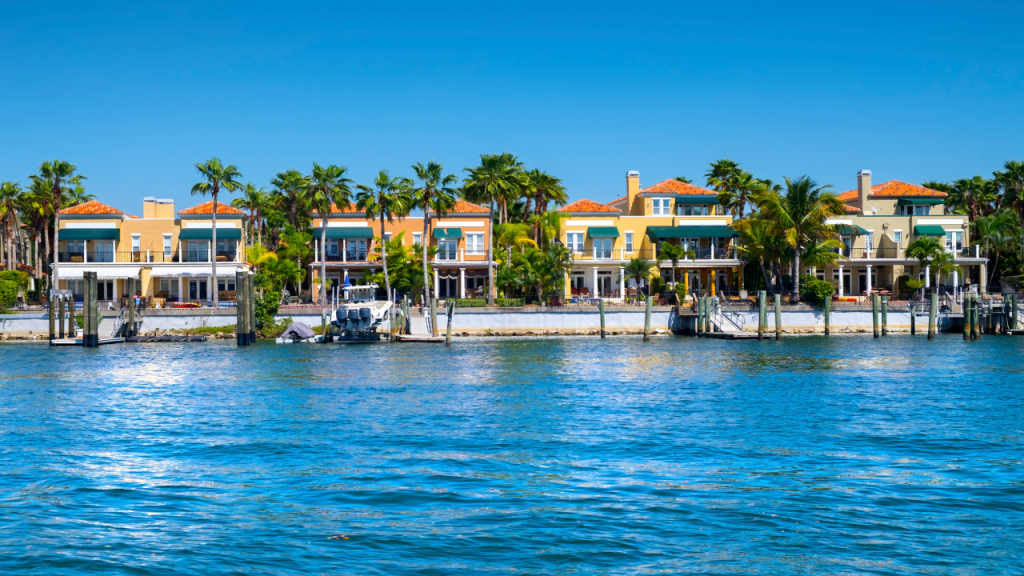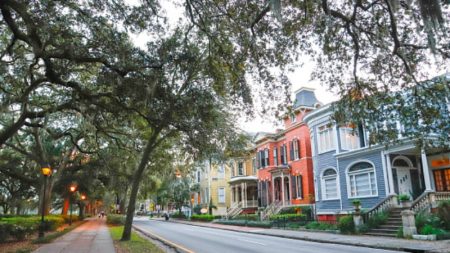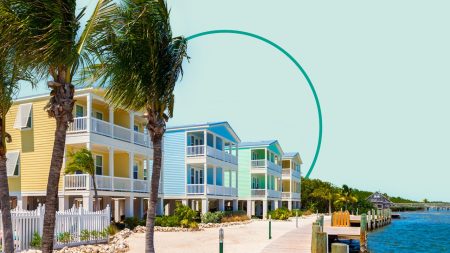Key takeaways
- New Hampshire is the best state for retirees, ranking well in neighborhood safety (1st), health care (5th), taxes (6th) and people of similar age (7th).
- Four of the top 10 best states for retirees are in New England (Maine, New Hampshire, Rhode Island and Vermont), and three are Western states (Idaho, Utah and Wyoming).
- Louisiana came in as the worst ranked state for retirees, finishing in the bottom third of all the study’s main categories, including 48th for crime.
- Eight of the 10 worst states for retirees are in the Sun Belt, including Alabama, Arkansas, Florida, Louisiana, Oklahoma, California, New Mexico and Texas.
For many Americans, retirement is a time to live their best lives — but where exactly is the top state to do that? According to Bankrate’s 2025 Best and Worst States to Retire Study, the answer is — New Hampshire, where the state’s motto is “Live Free or Die.” The Granite State unseats last year’s top scorer, Delaware, which fell to 11th overall.
The study’s top-10 list is dominated by more atypical members: four New England states, including New Hampshire, Maine, Rhode Island and Vermont, as well as three Western states, including Utah, Wyoming and Idaho.
Meanwhile, bringing up the rear in Bankrate’s annual retirement study? It’s the sportsman’s paradise of Louisiana. Several traditional retirement havens such as the Sun Belt states of Florida and Texas also ranked in the bottom 10.
FULL RANKINGS: See how your state ranks for retirement
“Our survey results may be shocking to any retirees who only considered warm weather and income taxes in their relocation plans,” says Stephen Kates, CFP, Bankrate financial analyst. “We incorporated 15 different data points into our analysis for a comprehensive perspective on the true costs of retirement across different states.”
Bankrate’s annual list of the top retirement destinations — and those you might want to avoid — analyzes data points for each U.S. state to come up with detailed results. To create rankings that accurately reflect what Americans value in a retirement destination, Bankrate weighted the data points based on how Americans themselves valued those categories in a national opinion survey. If more respondents said they valued a certain quality, like affordability or the weather, that quality was given a stronger influence over a state’s overall ranking. This resulted in a different methodology than was used in last year’s study and in years past.
- Affordability (28 percent)
- Weather (18 percent)
- Neighborhood safety (17 percent)
- Health care (16 percent)
- Local taxes (9 percent)
- Arts, entertainment and recreation (7 percent)
- People of a similar age (3 percent)
- Miscellaneous/other, including walkability, community well-being, air pollution and water quality (2 percent)
(See our full methodology for a breakdown of how we compared states across categories to score and rank them.)
Affordability remains a key issue for retirees, and Bankrate’s Retirement Savings Survey over the years has found that Americans feel behind on savings for their golden years. So, affordability is of paramount importance in the weightings, followed by weather and neighborhood safety.
“Retirees and pre-retirees should take notice of these rankings because we looked beyond the typical categories to look closely at important lifestyle and risk factors for residents of various states,” says Kates. “There is more to being a resident than just the number of sunny days and taxes. Categories like public safety, walkability, access to healthcare, air quality, recreational opportunities, and more add up to the daily quality of life retirees want.”
Best and worst states to retire in 2025
| The best states to retire | The worst states to retire |
|---|---|
| 1. New Hampshire | 50. Louisiana |
| 2. Maine | 49. Texas |
| 3. Wyoming | 48. Oklahoma |
| 4. Vermont | 47. Arkansas |
| 5. Idaho | 46. Nebraska |
Bankrate’s Best and Worst States to Retire Study revealed that New Hampshire is the best state for retirees in 2025, followed by Maine (2), Wyoming (3), Vermont (4) and Idaho (5).
New Hampshire topped the rankings in 2025 due to strong performances in:
- Neighborhood safety (1st)
- Health care (5th)
- Taxes (6th)
- People of similar age (7th)
Meanwhile, Bankrate’s study listed Louisiana in the bottom slot, largely due to poor showings in a number of key categories:
- Neighborhood safety (48th)
- Affordability (43rd)
- Weather (39th)
- Health care (37th)
Bankrate’s 2025 top ranked states for retirees skewed more heavily toward New England and Western states. Four of the top 10 are in New England (Maine, New Hampshire, Rhode Island and Vermont), and three are Western states (Idaho, Utah and Wyoming).
“Surprising to many, including me, is that there are four states from New England in the top 10,” says Kates. “Health care, both access and cost, as well as safety, recreation, and walkability play a major role in our rankings, and these states excel in these categories.”
At the lower end of the rankings, the Sun Belt states — long-time retirement havens for millions of Americans — populated the ranks. Eight of the 10 worst states for retirees are in the Sun Belt, including Alabama, Arkansas, Florida, Louisiana, Oklahoma, California, New Mexico and Texas.
“Unlike more common retirement rankings by state, Florida didn’t land very high on our list,” says Kates. “Coming in at number 41, Florida ranks strongly on taxes and abundance of other retirees. However, it ranks poorly for health care, home insurance costs and natural disasters, which create significant cost disadvantages for retirees.”
Top 5 states for retirees in 2025
Let’s run through some of the key reasons that states topped the rankings of Bankrate’s latest Best and Worst States to Retire Study.
1. New Hampshire
The Granite State is the best state to retire in 2025, and it’s clear that the state offers a lot to like for future retirees. While it scored a dismal 40th in the second-most important category of weather, due to its lack of sunshine, it ranked 14th for affordability and then scored toward the top in other key categories such as:
- Neighborhood safety (1st)
- Health care (5th)
- Local taxes (6th)
- People of a similar age (7th)
- Miscellaneous/other category (8th)
- Arts, entertainment and recreation establishments (15th)
So, New Hampshire mixes an affordable lifestyle with strong quality-of-life in terms of safety, health care and the arts. As far as taxes, New Hampshire does charge income tax on individual incomes, though it charges a 3-percent tax only on interest and dividends. That means retirees’ Social Security dollars could stretch further here than in other tax-heavy states.
2. Maine
Maine turned in a fine performance, with strong scores in a number of categories. It was tops in the number of senior residents, with 23 percent of residents age 65 or older, and it ranked second overall in neighborhood safety, thanks in part to the state’s lower rate of violent crime. It also added on solid rankings in health care (3rd) and arts, entertainment and recreation establishments (4th).
However, like its neighbor New Hampshire, Maine scored poorly in the weather category (41st), with one of the lowest levels of sunlight exposure on average in the country.
3. Wyoming
Wyoming might be the retirement destination for those concerned about finances. The Cowboy State scored tops when it comes to taxes, in part because it has no individual income tax, and ranked 4th in overall affordability, too. It also performed strongly in neighborhood safety (7th) and arts, entertainment and recreation (10th).
But the state clearly did less well in one of the most important categories for seniors, health care, where it ranked 39th.
4. Vermont
Next door to New Hampshire, Vermont also fared poorly on weather (43rd), and showed the second-lowest levels of sunlight exposure on average, but several strong categories turned things around for the state. Vermont topped the arts category with most venues per capita and was also the best state for health care.
It came in second for most similarly aged residents and turned in a solid but not overly compelling showing in the highest-weighted category, affordability (12th).
5. Idaho
Idaho — which was the seventh-fastest-growing state in 2024 by percentage growth, according to data from the U.S. Census Bureau — showed solid performances in a few categories and mixed performances in others. The Gem State scored well in neighborhood safety (3rd) and had the lowest rate of property crimes in the country. Idaho also did well on financial issues, including affordability (9th) and taxes (11th).
While the state ran in the middle of the pack for weather (24th), it fell in the bottom third in the arts category (37th) and people of a similar age category(35th).
Bottom 5 states for retirees in 2025
Let’s run through some of the key reasons that states landed on the bottom of the list in the study.
50. Louisiana
Louisiana turned in poor rankings across all major categories, failing to rank higher than 36th in any of them. On heavily weighted categories, such as affordability, neighborhood safety and health care, the state had dismal performances (43rd, 48th and 37th, respectively.)
The property crime and violent crime rates in Louisiana are higher than most states in the U.S. Even where you might expect the Southern state to shine — in the weather category — Louisiana still managed to rank only 39th, due to the number of tornadoes and the occurrence of 12 hurricanes from 2002 to 2023, which offset the state’s otherwise strong sub-category in overall sunshine.
49. Texas
Texas is another Sun Belt state that showed poorly in the rankings. Texas did well in the taxes category (7th), but that was a notable outlier when compared to the state’s other categories. The Lone Star State ranked dead last in health care and 49th in people of similar age. Safety was also notably weak, as the state ranked 38th.
On the top-weighted category of affordability, Texas ranked 42nd, and even on weather — which should be a winner for much of the South — Texas was ranked 47th, due to tornadoes and hurricanes, more than offsetting a 13th rank in total sunshine.
48. Oklahoma
Oklahoma had mostly poor rankings, though it did have a standout category in weather, where it ranked 13th, in part due to the huge amount of sunshine enjoyed by the state. Other major and minor categories matched the state’s low overall ranking: affordability (45th), people of a similar age (44th), arts (46th), health care (41st) and safety (37th).
As for affordability, Oklahoma’s average home insurance premiums are the third-highest nationwide and more than double the national average ($4,623 vs. $2,329), according to Quadrant Information Services.
47. Arkansas
Arkansas is another state that huddles right next to the three states higher on this list. Arkansas shows well in the weather category, ranking 9th, but then mixes in a couple of average performances with some poor showings. The state ranks 33rd in affordability and 26th in people of similar age.
Meanwhile, the state puts up scores in health care, safety and arts (42nd, 46th and 48th) that rank among the bottom. In particular, Arkansas ranked fourth-worst in the violent crimes metric that formed part of the safety category.
46. Nebraska
Look at Nebraska’s category scores, and you might be surprised to see the state on this list of bottom finishers. But it’s Nebraska’s 49th rank in affordability, the most heavily weighted category, that really pulls the state down. Part of the problem: Nebraska has the highest average homeowners insurance premiums statewide ($6,097 per year).
In other key areas the state is nearer to the middle of the pack: health care (20th), safety (23rd) and taxes (24th), though it slips to 32nd in weather. Absent the affordability issue, Nebraska would have landed much higher overall.
Full rankings: How your state ranks for retirement in 2025
| State | Overall rank | Local taxes rank | Affordability rank | Weather rank | Neighborhood safety rank | Health care rank | People of similar age rank | Arts, entertainment and recreational activities rank | Miscellaneous/other rank |
|---|---|---|---|---|---|---|---|---|---|
| New Hampshire | 1 | 6 | 14 | 40 | 1 | 5 | 7 | 15 | 8 |
| Maine | 2 | 29 | 17 | 41 | 2 | 3 | 1 | 4 | 24 |
| Wyoming | 3 | 1 | 4 | 21 | 7 | 39 | 16 | 10 | 27 |
| Vermont | 4 | 43 | 12 | 43 | 19 | 1 | 2 | 1 | 15 |
| Idaho | 5 | 11 | 9 | 24 | 3 | 19 | 35 | 37 | 34 |
| Rhode Island | 6 | 39 | 38 | 34 | 4 | 7 | 12 | 12 | 5 |
| West Virginia | 7 | 23 | 1 | 12 | 6 | 38 | 4 | 50 | 44 |
| Wisconsin | 8 | 19 | 6 | 44 | 9 | 15 | 17 | 32 | 29 |
| Utah | 9 | 16 | 11 | 6 | 15 | 27 | 50 | 17 | 22 |
| Virginia | 10 | 27 | 16 | 8 | 16 | 25 | 41 | 26 | 11 |
| Delaware | 11 | 18 | 3 | 17 | 31 | 18 | 5 | 28 | 16 |
| South Dakota | 12 | 1 | 35 | 42 | 25 | 22 | 23 | 21 | 18 |
| Connecticut | 13 | 47 | 28 | 33 | 5 | 10 | 18 | 14 | 9 |
| Oregon | 14 | 30 | 15 | 16 | 40 | 6 | 11 | 9 | 23 |
| Ohio | 15 | 35 | 5 | 25 | 22 | 21 | 19 | 36 | 39 |
| Massachusetts | 16 | 41 | 47 | 35 | 8 | 2 | 22 | 7 | 2 |
| Montana | 17 | 5 | 34 | 36 | 33 | 16 | 8 | 8 | 21 |
| Indiana | 18 | 10 | 8 | 20 | 21 | 32 | 40 | 45 | 38 |
| Michigan | 19 | 14 | 13 | 38 | 29 | 17 | 15 | 31 | 26 |
| Pennsylvania | 20 | 34 | 2 | 23 | 17 | 45 | 9 | 30 | 14 |
| Iowa | 21 | 20 | 18 | 46 | 14 | 26 | 21 | 43 | 25 |
| Minnesota | 22 | 44 | 31 | 49 | 20 | 14 | 27 | 11 | 17 |
| New Jersey | 23 | 49 | 23 | 28 | 10 | 31 | 29 | 23 | 1 |
| Illinois | 24 | 37 | 21 | 26 | 24 | 30 | 32 | 25 | 19 |
| Hawaii | 25 | 42 | 50 | 3 | 12 | 4 | 6 | 19 | 4 |
| North Carolina | 26 | 12 | 22 | 15 | 34 | 29 | 30 | 29 | 41 |
| Maryland | 27 | 46 | 32 | 14 | 35 | 11 | 38 | 16 | 6 |
| North Dakota | 28 | 9 | 27 | 48 | 26 | 24 | 43 | 34 | 20 |
| Nevada | 29 | 17 | 7 | 7 | 42 | 49 | 37 | 5 | 28 |
| New York | 30 | 50 | 39 | 37 | 30 | 13 | 20 | 2 | 3 |
| Arizona | 31 | 15 | 37 | 4 | 32 | 33 | 13 | 33 | 48 |
| Missouri | 32 | 13 | 19 | 19 | 39 | 35 | 24 | 35 | 32 |
| Georgia | 33 | 26 | 10 | 22 | 27 | 46 | 47 | 22 | 40 |
| Tennessee | 34 | 8 | 24 | 11 | 47 | 40 | 34 | 6 | 46 |
| Colorado | 35 | 31 | 41 | 5 | 49 | 12 | 46 | 3 | 12 |
| Washington | 36 | 45 | 26 | 30 | 44 | 8 | 42 | 27 | 13 |
| Kentucky | 37 | 22 | 40 | 10 | 13 | 48 | 28 | 44 | 37 |
| Alaska | 38 | 3 | 25 | 50 | 45 | 9 | 48 | 18 | 42 |
| Mississippi | 39 | 27 | 36 | 29 | 11 | 44 | 33 | 49 | 50 |
| South Carolina | 40 | 33 | 29 | 27 | 41 | 36 | 14 | 39 | 35 |
| Florida | 41 | 4 | 48 | 45 | 18 | 43 | 3 | 20 | 31 |
| New Mexico | 42 | 31 | 20 | 2 | 50 | 34 | 10 | 24 | 43 |
| California | 43 | 48 | 46 | 1 | 43 | 23 | 45 | 13 | 7 |
| Kansas | 44 | 25 | 44 | 18 | 36 | 28 | 31 | 41 | 30 |
| Alabama | 45 | 37 | 30 | 31 | 28 | 47 | 25 | 47 | 45 |
| Nebraska | 46 | 24 | 49 | 32 | 23 | 20 | 39 | 38 | 10 |
| Arkansas | 47 | 36 | 33 | 9 | 46 | 42 | 26 | 48 | 49 |
| Oklahoma | 48 | 21 | 45 | 13 | 37 | 41 | 44 | 46 | 47 |
| Texas | 49 | 7 | 42 | 47 | 38 | 50 | 49 | 40 | 33 |
| Louisiana | 50 | 40 | 43 | 39 | 48 | 37 | 36 | 42 | 36 |
Why we ask for feedback
Your feedback helps us improve our content and services. It takes less than a minute to
complete.
Your responses are anonymous and will only be used for improving our website.
Help us improve our content
Read the full article here












